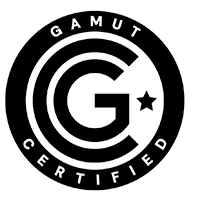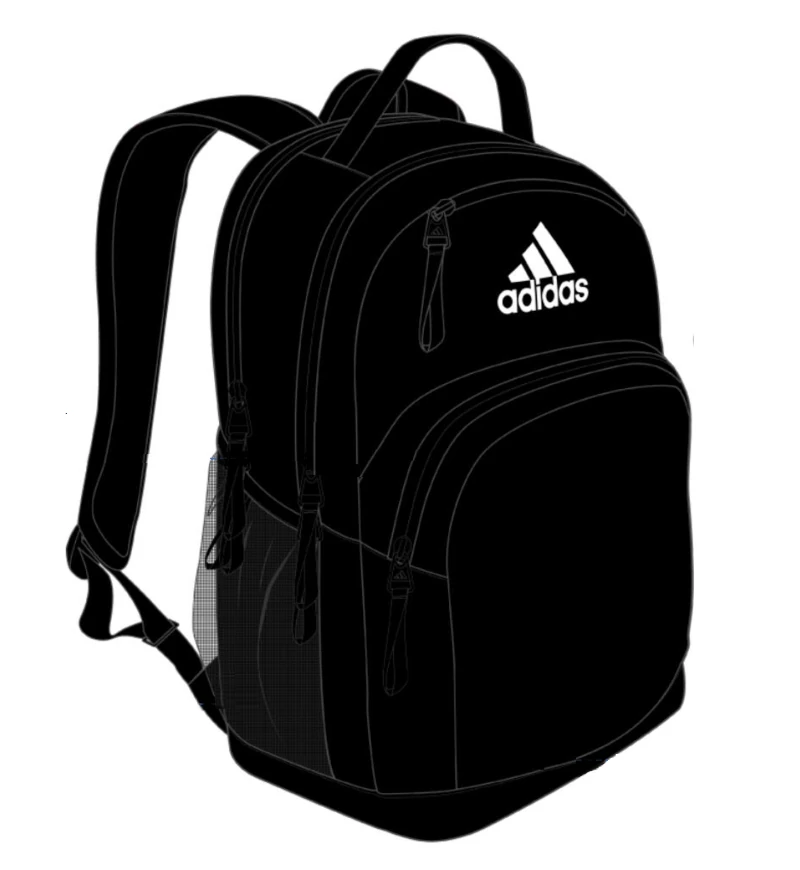Now that retailers have recognized people with disabilities as an attractive consumer segment, major brands are courting them hard. But not all products that are marketed as “adaptive” or “inclusive” fully live up to the billing. These labels—much like “organic,” “low fat,” “100 percent recycled,” and “energy efficient”—are loosely defined and ergo susceptible to misuse and abuse.

So how’s a choosy shopper supposed to distinguish authentic disability-friendly goods from those that merely pay lip service to accessibility because it’s a hot industry trend? Look for the Gamut Seal of Approval.
The first product that bears this designation, the adidas Adaptive Backpack, became available to consumers this week, setting a new standard for merchandise designed for people with disabilities. The product is available in-store at Famous Footwear outlets and online at adidas.com, kohls.com, and zappos.com.
Developed by adaptive fashion pioneer Mindy Scheier and her consulting agency, Gamut Management, the Gamut Seal of Approval certifies that a product has passed muster with members of the disability community—not only consumers but also clinicians, product developers, academic researchers, and other third-party experts.
“It’s a way to show that a company did things the right way,” Scheier explains. “They didn’t just put magnets in a garment and call it adaptive. They included people with disabilities in their processes. They went through focus groups and fit tests. We look at whether the company employs people with disabilities and whether they have an Employee Resource Group that’s focused on disability. People want to know whether the brand is committed to true inclusion, both internally and externally.”
“A brand is a promise we make to consumers,” adds Laura Jenks, an executive at adidas Accessories. “And if a retailer wants to hold up their promise to present useful merchandise to adaptive consumers, they need to have the Gamut Seal or they really risk their integrity.”

adidas Accessories was the first brand to run the Gamut Seal gauntlet, gaining certification last year for the adidas Adaptive Backpack. The company integrated disabled consumers’ input from the get-go, building multiple rounds of feedback into the development cycle. In addition to helping adidas Accessories build a better backpack, these conversations yielded insights that strengthened the company’s marketing angle.
“We didn’t really know how to speak to the adaptive community,” Jenks explains. “How do we call out the adaptive features and benefits? What do we call the product? Are we using language that speaks to what people are looking for? There’s this whole consumer-facing narrative that’s part of the seal.”
The product’s adaptive features include padded carry handles and larger zipper pulls for ease of use; an adaptable attachment point to fasten to wheelchairs or scooters; reinforced panels to keep the bag standing upright; a bright-colored lining to increase visibility; tall water-bottle pockets to allow for one-handed access; secure webbing so the straps won’t drag or catch; and a tablet sleeve in front pocket for ease of access.
“The beauty of the word ‘adaptive’ is that it doesn’t deter other people from purchasing it,” says Jenks. “There are features that speak to everyone. That wasn’t what we had in mind, but it’s a fascinating finding.”
Scheier says several additional brands have products in the development pipeline to receive the Gamut Seal. “We hope to get as many different products and services through the process as possible,” she adds. “That not only helps consumers get the best and most authentic products, it also gives companies a big support system. They can go through our process and know they’re doing things the best, most authentic way possible.”
Learn more about the Gamut Seal of Approval at gamutmanagement.com/accreditation.




